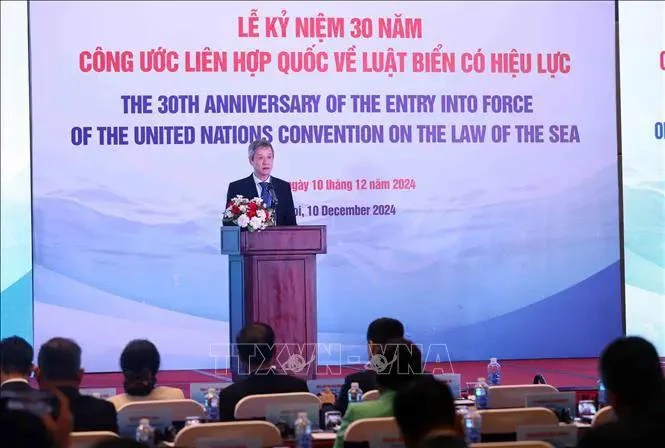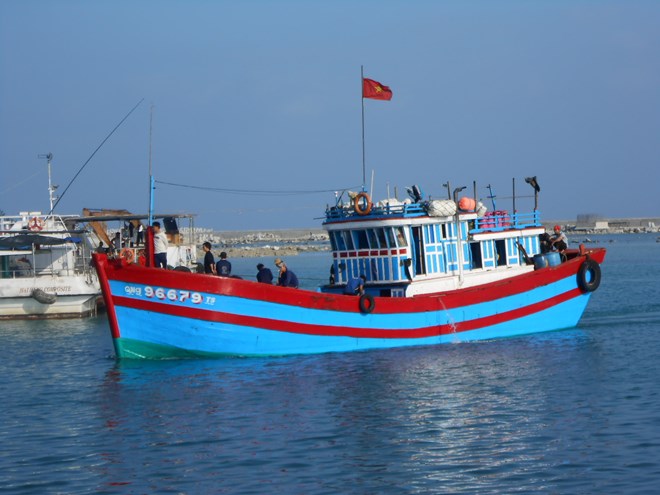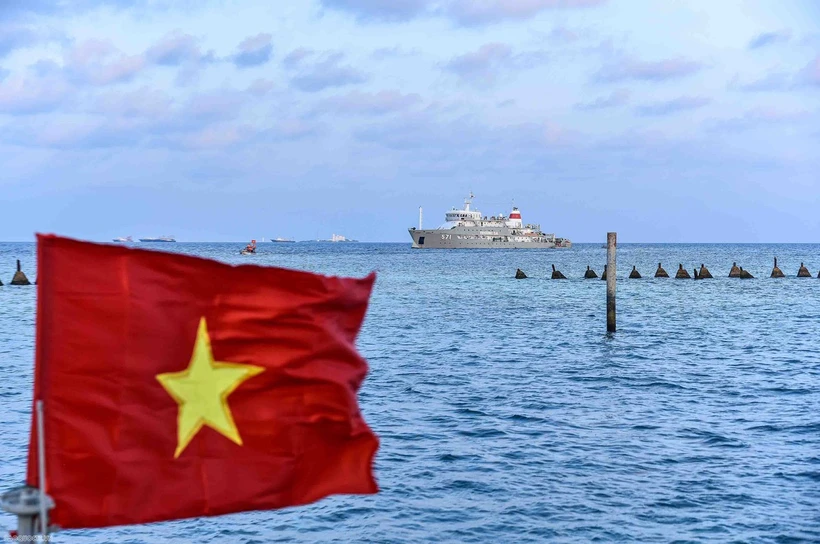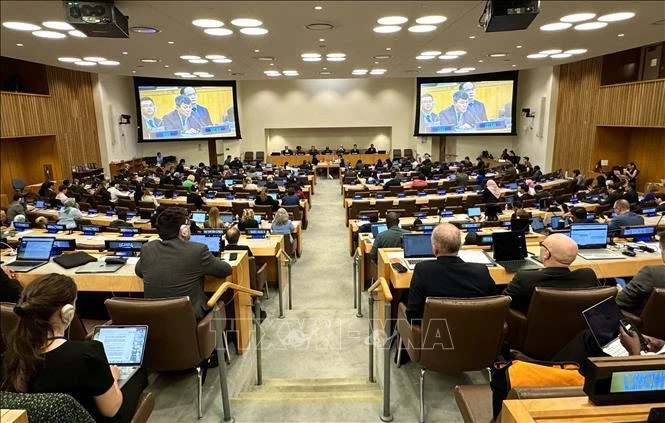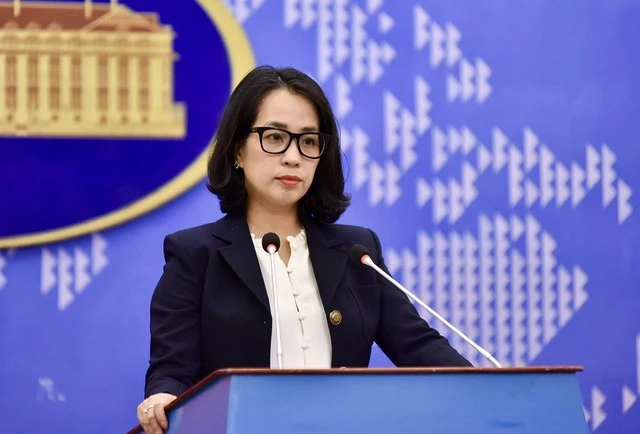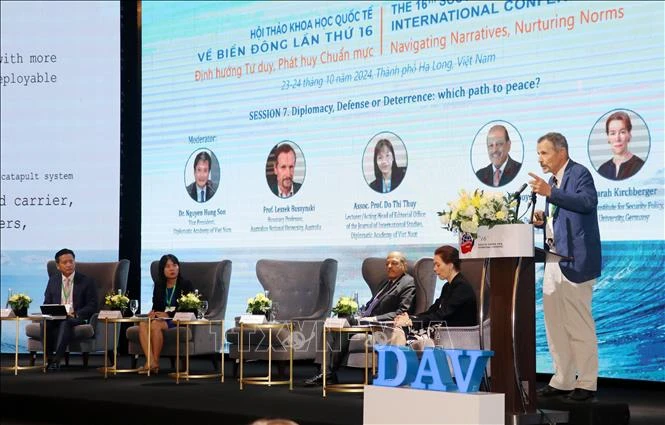
The 16th international conference on the East Sea in Quang Ninh province (Photo: VNA)
Via keynote speeches, senior leaders from Indonesia, Australia, the UK, the EU, and Canada affirmed the East Sea’s importance to countries, supporting efforts to maintain peace, stability, prosperity, and maritime safety and security in the area. They underscored the value of adhering to international law and encouraged greater cooperation. The head of the Indonesian delegation to the ASEAN Senior Officials' Meeting (SOM) highlighted the bloc’s central and pivotal role in ensuring the East Sea remains a region of peace, stability, and prosperity.
Discussing ASEAN's role, many opinions acknowledged that as it is facing challenges, it must assert its role in contributing to peace and stability and helping parties coexist peacefully. Most underscored the need for the bloc to maintain its centrality and unity, enhance multilateral diplomacy, and adhere to international law.
Scholars addressed shared challenges regarding international maritime safety and freedom, drawing parallels between the Red Sea and the East Sea. Numerous lessons and experiences were exchanged, including the role of international organisations like the International Maritime Organisation (IMO).
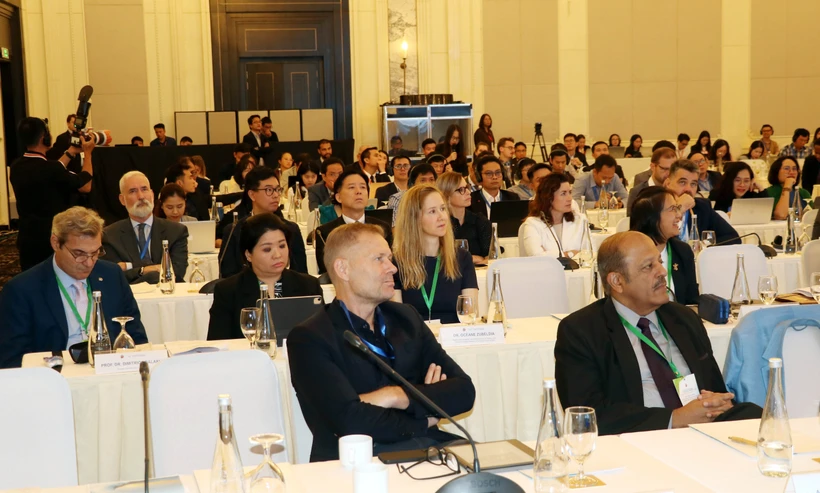
Participants in the conference in Quang Ninh province (Photo: VNA)
The 16th conference took place as the world commemorates the 30th anniversary of the United Nations Convention on the Law of the Sea (UNCLOS) 1982. Judge Hidehisa Horinouchi of the International Tribunal for the Law of the Sea stressed UNCLOS's continued relevance in addressing new challenges like fishery resources, biodiversity conservation, and climate change, while legal experts said it is neccessary for the document to be interpreted and applied in good faith. Some suggested that major powers, including the US, should commit to UNCLOS, and that regional countries, such as Cambodia, should ratify it.
Regarding the obligation to refrain from the threat or use of force, the majority opinion proposed that states should enhance mutual understanding and reach consensus on transparency, international law compliance, and peaceful dispute resolution by peaceful measures, avoiding actions that could complicate disputes.
Scholars also called for responsible and safe use of technology by maritime actors as well as the development of regulations to ensure the effective operation of technology and prevent the risk of an AI-powered arms race.
In discussions on policy choices, most scholars supported diplomatic and cooperative measures to maintain regional peace and stability and address both regional and global challenges, contributing to sustainable development goals.
Deputy Minister of Foreign Affairs Do Hung Viet highlighted the timeliness of the conference, which coincides with the 30th anniversary of the United Nations (UN) Charter and the UN Convention on the Law of the Sea (UNCLOS). He emphasised the importance of UNCLOS as a comprehensive legal framework governing all maritime activities.
The integrity of the Convention must be preserved, he asserted, underlining its role as the foundation for global, regional, and national actions in maritime spaces.
Sidharto Reza Suryodipuro, Director General of ASEAN Cooperation at the Indonesian Ministry of Foreign Affairs and head of the ASEAN Senior Officials’ Meeting (SOM) for Indonesia, said the East Sea is Indonesia's top priority, and emphasised ASEAN's central and important role in maintaining the East Sea as a zone of peace, stability and prosperity.
Tim Watts, Assistant Minister for Foreign Affairs of Australia, reaffirmed Australia’s support for a peaceful, stable and prosperous region that adheres to international law and ensures unimpeded freedom of navigation. He expressed a desire to strengthen cooperation with partners, expand maritime collaboration, and protect marine resources and environment in the region.
Delegates discussed common challenges facing international maritime safety and freedom. They drew parallels between the Red Sea and the East Sea, sharing valuable lessons and experiences, including the importance of enhancing the role of international organisations like the International Maritime Organisation (IMO).
Many international delegates and scholars held that it is necessary to condemn aggressive actions in the East Sea and stay united to prevent and combat agressive acts.
In his closing remarks, Nguyen Hung Son, Deputy Director of the Diplomatic Academy of Viet Nam, held that despite global geopolitical shifts and technological advancements, there remain many tools to manage tensions, including diplomacy, international law, shared commitments, and peaceful cooperation. He highlighted the critical role of ASEAN in promoting adherence to and strengthening common norms that ensure regional peace and stability.
A special session on youth and maritime security also took place on the sidelines of the conference./.
Source: VNA

